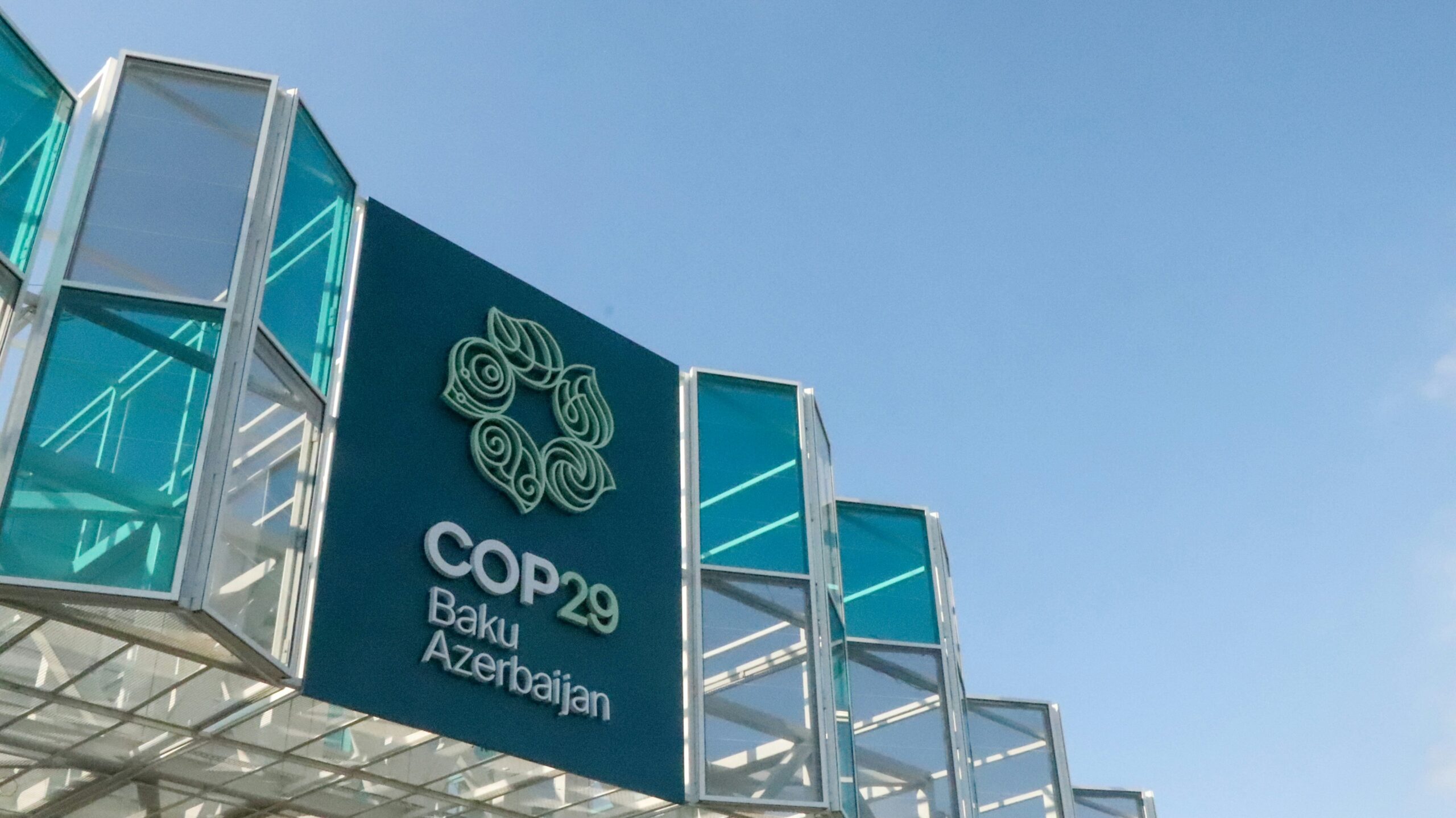“You’ll have more oceanfront property,” said President-elect Donald Trump earlier this year when asked about rising sea levels. It must have come as no great surprise that the President-elect would show little or no interest in attending COP29 this week, the 29th iteration of the UN Climate Change Conference. In a massive blow to climate diplomacy, the leaders of thirteen of the world’s largest emitters decided to join Trump in bailing on the climate action summit. The heads of government of Germany, India, China, and Brazil respectfully declined the invitation to attend the high-stakes climate event.
With major powers absent, Azerbaijani president Ilham Aliyev sought the limelight in his opening remarks. He accused Western countries of political hypocrisy, lecturing developing countries about global warming while their own economies rely heavily on fossil fuels. In his first address to the international community, Aliyev called oil and gas “a gift from God”. He argued countries should not be blamed for having resources and bringing them to market because “people need them”. The substance of the conference is being drowned out with eyes turned on the 1,700 fossil fuel lobbyists in Baku, the summit’s third time hosted by a “petrostate” and renewed fears Donald Trump may pull the U.S. out of the Paris Climate Agreement – and bring other countries with him.
The Azerbaijani President caused a diplomatic row when he blasted France and the Netherlands for holding on to their overseas territories, with many hit hard by rising sea levels. He pledged to support small island nations whose voices are “brutally repressed” by neocolonial regimes. The French Climate Minister, Agnes Pannier-Runacher, who was scheduled to join the conference this week, called the remarks “unjustifiable” and “unacceptable” in an address to the French Senate. After discussions with President Macron, the Minister announced she would boycott the talks.
Spanish Prime Minister Pedro Sanchez and UK leader Keir Starmer were among the most high-profile European leaders present but bigger stories came from Italy’s Giorgia Meloni and Hungary’s Viktor Orbán. While Orbán defended the fossil fuel industry, Meloni made a nationalist case for combatting climate change.
Meloni’s vision for climate action rests on two pillars. The first is the economic case. There is money to be made from investing in green technology. While the global green economy took a hit after the US election, the industry has rallied and remains profitable. Countries like Meloni’s Italy, remain eager to invest in electric vehicles and solar panels. The second pillar of Meloni’s plan focuses on migration. Her argument is that tackling greenhouse gas emissions can be compatible with tackling immigration. Rome is keen to reduce immigration to Italy by funding climate mitigation efforts in Africa. It remains unclear how effective this approach will be. The Italian Prime Minister is a big proponent of nuclear energy, a policy popular with her base but which remains hotly contested by climate and energy scientists. The German Green Party, currently in government, was intent on shutting down nuclear energy in Europe’s largest economy and did so successfully in 2022.
Reading and following developments around COP29, climate activists and environmentalists will be in for a disappointment, but this does not mean that there are no reasons to be hopeful.
In 2020, the Irish Green Party pledged to lower carbon emissions. They are now at their lowest level since 2030. Ireland is no longer a climate laggard as it was once branded. Minister Eamon Ryan is currently attending COP on behalf of the Irish government. He was appointed by the COP presidency to be a co-facilitator on climate adaptation negotiations. International media outlets have called him a “key negotiator” and a “lead EU” facilitator. Not bad for a 5 million-people strong island on Europe’s outer edge.
Critics have pointed to Azerbaijan’s human rights record and the appropriateness of the country hosting the summit. There are lessons to be learned from COP29. This does not take away from the importance of climate diplomacy and the need to treat carbon emissions as a global issue. Greta Thunberg was arrested in Brussels last month for blocking a road in protest of EU fossil fuel subsidies. She has also voiced her support for Palestine, making the case that climate justice is synonymous with social justice and vice-versa. The climate movement may not be garnering as much media attention as it once did, but it remains strong and active.
Could this be China’s moment? Simon Stiell, the UN Climate Chief, praised China’s progress on sustainable technology and called on the country to lead the efforts in the global fight against climate change. China is the world’s biggest polluter. If the world is to stand a chance at stalling increases in global temperatures, China must lead the way. The EU and China are currently embroiled in a trade dispute over electric vehicles. European countries have sought to block the import of Chinese EVs to protect the European car industry but is European industry investing enough in green tech? The jury is out.
Germany had a decent excuse for missing COP. Barely a week after the US election, the German coalition government collapsed when social democratic Chancellor Olaf Scholz clashed with his right-wing finance minister Christian Lindner over public spending and providing greater support to Ukraine. The German Greens have been unequivocal in their support for greater public spending and the need to fund crumbling German infrastructure. An election is expected in March. The Greens will face an uphill battle, but the climate agenda is unlikely to be going anywhere.
The future of climate diplomacy will remain in the hands of voters and countries’ support for multilateralism and a renewed commitment to international forums like COP.
Hugo Murphy is a Trinity graduate.







